
Arquivo para a ‘Information Philosophy’ Categoria
Hermeneutics and fanaticism
From the Platonic philosophy, which was an overcoming of the discourse of the sophists that served only the rhetoric of power, the dualism of knowledge between the Doxa that is the opinion and the Episteme that would be the true knowledge, but some authors see Doxa as first knowledge.
sophists that served only the rhetoric of power, the dualism of knowledge between the Doxa that is the opinion and the Episteme that would be the true knowledge, but some authors see Doxa as first knowledge.
All discourse and Socratic logic, which Plato uses abundantly, is nothing but the dialogue between knowledge as presented and its elaboration through questions.
The fact that we fall into a labyrinth of doubts and crises in modernity, even with systematized knowledge is nothing but the return to what is in fact the episteme, how life changes, the logic of life would also be expected, must change and so Changes the method of investigating it.
I call this requirement of our time “epistemological openness,” allowing new systems and new ways of thinking to be possible and amenable to analysis, so “doxa” or simple opinion may not be just a modern form of sophistry, but a “Unveiling”.
Fanaticism is generally the refusal to an “epistemological opening,” is the closure in a scheme “that worked” for a period, but may no longer serve the logic of life today.
Of course there are several levels of fanaticism, but in essence it is a closure to the discourse of the Other, to the hermeneutic circle where some form of fusion of horizons is possible, as the philosopher Gadamer calls it.
So to speak is the communication that another discourse different from that of my epistemic circle is not accepted, it is not tolerable and should be banished, hence to get violent forms of communication is not a step, but it is an almost inevitable path.
It is not an epistemic closure, a help is Marshall Rosenberg’s book “Nonviolent Communication” ranges from self-help to freedom from conditioning and negative experiences, to philosophical schemes and problems of political positioning so common in all spheres of our Life today
The Spirit of Truth in Idealism
Modern idealism initiated with Fichte (1762-1814) and Schelling (1775-1854), as a certain opposition to Kant’s philosophy that is also idealistic, will have its apex with Hegel (1770-1831), who claims to exist an “absolute spirit” and Which is the one with which man relates more deeply, can be known and can be unfolded in three relevant levels: art, religion and philosophy.
as a certain opposition to Kant’s philosophy that is also idealistic, will have its apex with Hegel (1770-1831), who claims to exist an “absolute spirit” and Which is the one with which man relates more deeply, can be known and can be unfolded in three relevant levels: art, religion and philosophy.
It seems strong and even true, but there are severe critics who say that the death of art happens to Hegel, Marx somehow tries to proclaim the end of philosophy by stating that “philosophers must now transform the world,” and lastly, religion of Hegel is nothing but the purest philosophy of God, unable to reach the world and the concrete man.
Of course, the guilt is not exclusive to Hegel, but philosophy, art and religion are decidedly in crisis, and almost all philosophers and theologians, reading the “last testament of Benedict XVI”, affirm that since 1956 a process of “de-globalization” of Religion, that is, the loss of its universality.
On the subject of art, I recall Heidegger’s text on the question of technique, but whose most profound critique is that of art, when it asserts itself by questioning the truth, freedom, and event of being and being, that “art is historical In the essential sense [… since] it lets the truth sprout. Art, while a preservation that sows, lets the truth of the being sprout in the work, “but he sees that today he needs an unveiling.
Idealist philosophy expresses the “absolute spirit” in Hegel thus: “The spirit is spirit only, insofar as it is to the spirit; And in absolute religion it is the absolute spirit which manifests itself, no longer its abstract moments, but itself. ” (HEGEL, 2012).
It is a closure of the spirit in itself in a pure spiritualism, without one for which it is the opening to the other, this is the contemporary religion that when it manifests itself in relation to the external object does not see it within itself in its subjectivity, Hegel expresses Philosophy is determined to be a knowledge of the necessity of the content of absolute representation, as well as of the necessity of the two forms: on the one hand, the immediate intuition and its poetry, and the representation, which presupposes revelation Objective and external; On the other hand, first, to enter into subjective self, after the subjective outward movement and the identification of faith with the presupposition. “(HEGEL, 2012).
Contemporary philosophy, from Heidegger with Gadamer, Paul Ricoeur and Emmanuel Lévinas, opens it with the hermeneutics present in the Question of consciousness of the story of Gadamer, in the Other of Paul Ricoeur and in Totality and Infinity of Emmanuel Lévinas.
HEGEL, G.W.F. Phenomenology of Spirit, translated by Terry Pinkard, 2012.
Nectarios G. Limnatis, German Idealism and the Problem of Knowledge: Kant, Fichte, Schelling, and Hegel, Springer, 2008.
Effective historical consciousness, pain and the Other
In this sense, we speak of an inversion of consciousness, but 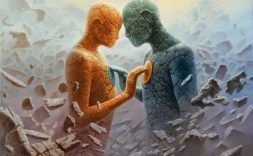 consciousness in Hegel and in all Enlightenment, it follows that experience is translated into a dialectical movement of consciousness with itself. In the last instance, in absolute knowledge one perceives Identity of subject and object, but in the logic of fusion and not the distinction between subject and object. This removes all possibility and legitimacy from experience, since man has to be in the very content to accept it and the consciousness to acquire certainty of itself;
consciousness in Hegel and in all Enlightenment, it follows that experience is translated into a dialectical movement of consciousness with itself. In the last instance, in absolute knowledge one perceives Identity of subject and object, but in the logic of fusion and not the distinction between subject and object. This removes all possibility and legitimacy from experience, since man has to be in the very content to accept it and the consciousness to acquire certainty of itself;
In Gadamer’s logic, “the essence of experience is here thought from the beginning, from something in which experience is already overcome.
For experience itself can never be science, “in addition, Heidegger warns that Hegel does not think of experience as a dialectic; On the contrary, visualizes the dialectic from experience, it would be said that it is not the consciousness of the world, but the world of consciousness.
If from experience one never makes science because there is “an insurmountable opposition to knowledge and to that teaching flowing from a theoretical or technical knowledge,” object of several studies of ours, because one always faces an opening for other experiences. One must accept the fact that certainties and dogmas do not last forever and are subject to change. The only plausible certainty is impossibility of knowing everything.
The more experienced an individual is, the more awareness he has of the infinite possibilities of the human being and the more he is aware of his Being.
Thus the path made Gadamer possesses elements to conclude that experience is the consciousness of one’s own human finitude and limitations, a reference to classical philosophy, in Aeschylus is quite illustrative: “to learn by suffering”, that is, painfully, the Man becomes aware of his separation from the divinity and temporality of his existence. Every experience, no matter how consumed or exhausted, always constitutes openness. Not even man has an essence. Being means a power to be itself, because it has the characteristics of indefinition and the infinite possibilities. In this way, it becomes incoherent to speak of experience in the teleological sense, as Husserl and Bacon, and Hegel’s deformed form.
Tradition has to reach experience, just as language is complementary and from it comes speech, which is a you, you must differentiate your experience from truly hermeneutic experience, see works by Paul Ricoeur and Emmanuel Lévinas, while the first Can take place in the form of knowledge of persons, making you an object of analysis, or recognizing it as a person, but still remains with reference to the interpreter itself, hermeneutics allows the other as an interpreter is therefore a step forward in knowledge Of truth.
The hermeneutic experience is one that assumes the consciousness of the actual history. Tradition has to be truly understood as a you. All otherness has something to say and its condition of another must be respected. Pretensions or preconceptions can not be imposed. The opening occurs in a mutual way, that is, between those who “listen” and those who “speak something”, even with the possibility that it is contrary to the interpreter, according to Gadamer.
The actual consciousness and the question of experience
The actual consciousness is the recognition that it is structured in the form 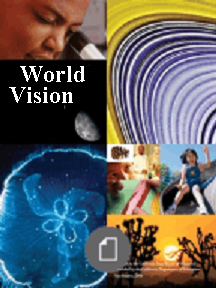 of experience in Gadamer, but it is necessary to understand the hermeneutic experience, especially since it is a concept of difficult understanding, because the overvaluation of scientific knowledge, notably in the nineteenth century, Led to a distortion of its real value.
of experience in Gadamer, but it is necessary to understand the hermeneutic experience, especially since it is a concept of difficult understanding, because the overvaluation of scientific knowledge, notably in the nineteenth century, Led to a distortion of its real value.
In the scientific point of view, experience is all that can be repeated by whoever wishes at any time, that is, it is fundamentally linked to an objectifying “path” of knowledge, sometimes called practice, but which practice? . Gadamer was to revisit just what various philosophical nuances understand by scientific truth and method, it is not a conclusion just a “unveiling.”
For Francis Bacon, all knowledge should come from experience. It was in this way somewhat unpretentious to face the experience that later came to a valid generalization until it was opposed, proposing the interpretatio natura, a way of “gradual access to true and sustainable generalities” and that later it was systematized and became “method “By Hume, considered the father (perhaps the grandfather) of empiricism, so through the observation of nature, the inductive method allows access to the general, raised to this category after the rational organization of the data obtained and the proof of the hypotheses, but Empiricism has also generated contradictions.
Husserl attempted to get rid of this experience bias of the linkage with the science of all experimentation, claiming that it occurs in the world of life, therefore, it predates its idealization. Here in the sense of Kant’s Critique of Pure Reason, which tried to reconcile rationalism and empiricism. As we know, inspired by Descartes, the phenomenon was something that showed “repudiation by the empirical sciences”, which denotes the lack of appreciation for the experiences trying to make all interpretation by “reason”. If only that which is evident in consciousness can be true, surely the senses lead to deception. However, Husserl remained attached to what he wanted to free himself, but Heidegger and Gadamer took the necessary steps.
Gadamer objected to the objection of simplifying the process of producing experience by focusing on its relation to science and to the formation of concepts. The process of experience truly takes place on its negative side, that is, it deconstructs generalities and typicities, does not correspond to expectations, as it affirms in Truth and Method “the negativity of experience has, therefore, a particular productive meaning. It is not simply a deception that becomes visible and, consequently, a correction, but what is acquired is a comprehensive knowledge. “
The negative sense of experience and the constant openness to new possibilities lead to the dialectic, a question which Hegel elaborated, for which experience is a manifestation of skepticism, but an experience is rewritten according to the maxim of Heraclitus of Ephesus: “you can not pass The same river twice, the waters run over you.”
The Problem of Historical Consciousness
In 1957 Hans-Georg Gadamer was invited to lecture for a quarter at the 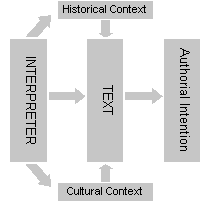 University of Louvain, in 1963 he appeared in French under the title Le probleme de la conscience historique, and there was still no major work of the hermeneutic philosopher “Truth and Method”.
University of Louvain, in 1963 he appeared in French under the title Le probleme de la conscience historique, and there was still no major work of the hermeneutic philosopher “Truth and Method”.
After it appeared in 1969 an Italian version of the text, but it was in the English version of 1975, that according to Gadamer he “rediscovered with himself” reviewing the original text for publication in English, of this edition was made the translation into Portuguese, like 1st edition in 1998, and the edition I read is from 2006, 3rd. Edition made by FGV (Getúlio Vargas Foundation, Brazil).
The book is therefore a powerful preamble for anyone who wishes to read Truth and Method, where the problem of historical consciousness and its relation to the method goes back to Schleiermacher and his retelling by Dilthey, Gadamer being “his ideal is to decode the Book of History” (Gadamer, 2006, p.11).
The lectures of Gadamer, which were the basis of this booklet, reflect the “problem of introducing the hermeneutic problem from the perspective of Husserl and Heidegger” (page 10), a problem which was therefore treated in a special way in Germany, where thanks to Wilhelm Dilthey and what is called his Lebensphilosophie “(idem), the philosophy of life.
The problem of interpretation according to the laws of nature, in german Geisteswissenschaften (Human Sciences), Gadamer clarifies that in Truth and Method he deliberately began to invoke another example, “represented by the experience of art and the hermeneutic dimension, which certainly intervenes in the study Art scientist, but above all in the experience of art “(page 10).
He goes with this to distance himself from Dilthey, who set out to construct an epistemic base for the Geiteswissenchaften, but was not seen as the philologist clarifies, but as “a theorist of the method of a school history who did not see” the understanding of texts and other fragments of the past as their ultimate goal”, Gadamer wrote quoting Dilthey.
What Dilthey hoped was to reconcile the interpretive sciences with their scientific objectivity, the initial idea was to give hermeneutics a universal method.
Gadamer clarifies his position: “to show that self-understanding in relation to the sciences is not really consonant with his fundamental position in terms of Lebensphilosophie” (page 12), and clarifies that the human possibility of reflective thinking “does not coincide in Truth with the objectification of recognition through the scientific method. “(Idem)
It will clarify that the connection between “life” when one speaks of consciousness and reflexivity and “science” (he put in brackets), to develop from life is one of possibilities.
Hans-Georg Gadamer, “The Problem of Historical Consciousness,” in “H.-G. Gadamer,” special issue, Graduate Faculty Philosophy Journal 5:1 (1975) (the number of pages is Brazilian edition).
Two findings: technology and religion
We must read the history of the present moment backward, that is, in the opposite sense,  although a dose of “desantropomorphization” is always important, that is, to attribute the whole foundation of the concepts studied to man alone, without considering his surroundings; with this the use of technology for its handling.
although a dose of “desantropomorphization” is always important, that is, to attribute the whole foundation of the concepts studied to man alone, without considering his surroundings; with this the use of technology for its handling.
This means that man is what he does with nature and with his fellows around him, the important relation to the Other that the current philosophy emphasizes.
Taking a leap into history, returning to 7,000 BC, we find the Stonehenge monument in central England, and recently (in the 1990s) a cave was found with paintings dating to 30,000 BC, the Chauvet Cave.
Several studies of archeology, Stonehenge is more advanced, point two interesting facts: the technological importance, the stones of Stonehenge were moved by England from Wales, and the religious aspect: it is known that that circle is part of larger circles of Where several inhabitants came for some sort of “religious” rite.
The second discovery is more intriguing, a true art gallery was found in Chauvet, showing an already refined technique of painting and what Werner Herzog called “homo spiritualis” in his film “The Cave of Forgotten Dreams“, the only film allowed Until today of this gallery of prehistoric art.
It is important to know that both English researchers and archaeologists who research Stonehenge (see our post) and Werner Herzog who filmed Chauvet are not religious people, but the realization that there was something “spiritual” on both monuments makes us think.
Man has always lived immersed in a spiritual sphere, which Teilhard Chardin called the Noosphere and used technology, so the anthropomorphic principle is false, we are nature.
Translate into simple things can complicate
Networks are simple, but any analysis using even simple concepts such as  “weak links,” “bridges,” “centrality,” and “degrees of separation” can, as the number of actors in a network increases, exponentially increase its complexity.
“weak links,” “bridges,” “centrality,” and “degrees of separation” can, as the number of actors in a network increases, exponentially increase its complexity.
There are many everyday reasonings that lead to this misguided thought, the simple idea that life, its origin in the universe, what we do and what we are, has simple answers leads to a mistaken simplistic reasoning, from the scientific to the religious.
The idea that God exists or not for example is complex, because its three structuring elements are not simple: faith that is belief in what is not evident (not so simple), hope whose element can often arrive at the absurdity that is – the same in situations of despair, war or any extreme gravity; And finally: charity (in the sense of agape love) which is perhaps the most impossible thing to codify, yet easy to feel how much it really is in her presence.
But scientific reasoning is the most complex, from the formulas of reductionists such as Wilhem Ockham, English nominalist of the eleventh century who created the famous Ockham Razor, which if it is between two explanations of a certain object, I get the simplest, but it questions remains: who guarantees that the correct explanation is not the complex one.
Nominalism was fought by the realists, and the fundamental problem is whether or not there are universal, which are realities in themselves, and transcendent in relation to private ones, that is, the qualities (Plato enunciated the formula universais ante rem), or Properties since things are immanent qualities (for Aristotle: university in re).
From Duns Scotus, who called the razor principle of economics (of reasoning?) And later Descartes and Kant, although Kant’s masterpiece was a critique of Descartes: Critique of pure reason, but what lies at the base Of this discourse, is sometimes forgotten, or neglected: subjectivity, the transcendent, and the faith.
Duns Scotus, who is at the origin of this thought, curiously asserts that the truths of faith could not be understood by reason, the contrary that had been said by Thomas Aquinas, which was realistic, and what Kant desires in criticizing “pure reason” is Fact that it can not subsist on its own, needs to “transcend” to the object, creates a subjectivism of its own to which some fundamentalist currents will associate, Kant was a descendant of Puritan Protestants.
His task at the epistemological level was to try to make a synthesis between Descartes and Leibniz’s rationalism and the empiricism of Hume, Locke and Berkeley, but he will be especially useful to nascent liberalism, although this connection is complex, one can simplify it to taste Of simplism: to separate subject and object.
Yes, it is not only this, but Hegel will finish the task of liberal idealism: to construct an eternal idea of State, to organize religion in a way that is convenient to “subjectivism”, removing it from concrete and objective things, and finally to create a “Phenomenology of the Spirit” .
Those who wish to make this understanding a reductionist and simplistic task will read history as those who wished to write it did so, separate the subjective: religious, historical, political, and even religious, from concrete historical consciousness: facts, miseries and corruptions .
The apology of ignorance, the absence of deep thought serve whom? Post-true mentality.
Historical consciousness absent
There are two conceptions that mark ideas about contemporary history: one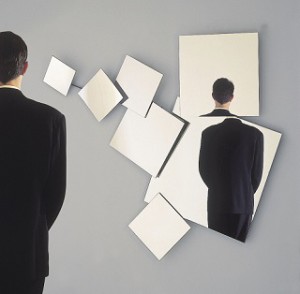 of positivist reasoning we owe to Karl Popper, who misrepresents Karl Marx, but he wrote against “historical determinism” even though he wanted to make his theory a “scientific socialism “The other, which poses a positivist and skeptical view of possible changes and transformations within historical consciousness, such as the end of history.
of positivist reasoning we owe to Karl Popper, who misrepresents Karl Marx, but he wrote against “historical determinism” even though he wanted to make his theory a “scientific socialism “The other, which poses a positivist and skeptical view of possible changes and transformations within historical consciousness, such as the end of history.
There are those who call all this from “practice” in opposition also incorrect to theory, because nothing more theoretical than a bad practice and nothing more practical and present in life than a good theory.
The importance of rethinking historical consciousness, not instrumentalized and in deep dialogue with humanity, comes from Hans-Georg Gadamer, although the proponents of the “scientific-historical” currents above say that this is only a theoretical reflection of history, for That their practice is so bad and of little fertility.
Is there historical being? Do we conceive ourselves with this being? (Gadamer, 2007, p. 307), so one can see how much theory and life it is. That there is no historical reflection.
What would this being be in time? By borrowing from Heidegger’s reflection that Gadamer is also an heir, the answer is very simple as well: “tradition is essentially conservation and as such is always active in historical changes” (Gadamer, 2007: 373) We are impelled not to change, even if we think and desire change, today how much to change!
We can think and why it does not change, with so many attempts and today we can say almost two centuries if we think of the great crisis of the seventeenth and eighteenth centuries, mercantilism and industrial revolution, with serious consequences in European and then world wars, but at the root of this crisis is the thought (theoric?),
About what we think about democracy, social life and conceptions of economy.
The successive author-referenced thinking of various currents, beliefs, and theories is the problem of ‘tradition’, as described by Gadamer: “It is not history that belongs to us, but we belong to history” (Gadamer 2007, 367), that is, we are the fruits of our time, in the “theoretical” way of thinking and its instruments.
GADAMER, H-G. Verdade e Método (Truth and Method: Fundamental traits of a philosophical hermeneutics). Petropolis: Voices; Bragança Paulista: Editora Universitária, 2007.
Hermeneutics, ontology and dialogue
The word hermeneutics comes from the Greek hermeneuti, hermeneutik or hermeneia,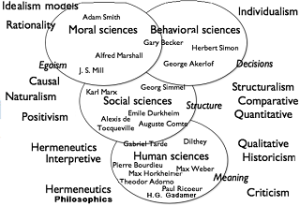 in a sense given by Philo of Alexandria as “hermeneia is logos expressed in words, manifestation of thought by word,” so it is associated with the god Hermes.
in a sense given by Philo of Alexandria as “hermeneia is logos expressed in words, manifestation of thought by word,” so it is associated with the god Hermes.
This god in Greek mythology was a mediator, patron of communication and human understanding whose function was to make the divine message intelligible to men, being attributed both to the origin of oral and written language.
Ontological hermeneutics was developed in the Middle Ages, it was based on the idea that there would be normative forms that allowed from interpretative techniques of texts, to make unique interpretations, but from the beginning it was divided into theological hermeneutics (sacra) and philosophical (profane) hermeneutics, and more recently a legal hermeneutics has emerged.
Plato was the first to use it, with the clear aim of overcoming the relativism of the sophists, but the understanding of this as language is due to the already mentioned Philo and Clement of Alexandria, and later Augustine (354-430) developed it As “Christian doctrine,” which, whatever the reading, is admittedly the most effective in the ancient world.
Plato (427 BC) the first to use it. Philo and Clement of Alexandria will understand it as the manifestation of thought by language. Augustine (354-430), who developed in his “Christian Doctrine” the acknowledged most effective hermeneutical theory of the “ancient world”, will use it as a doctrine of interpretation, especially of the obscure passages of Sacred Scripture, the method may help also a universal vision of using language in the interpretation of philosophical and even scientific texts.
Schleimacher will lend this reading, the idea that it is mainly in obscure passages of the Bible to seek the “living truth” because, he says, this is a search for understanding, or as he says: “understanding means, in principle, with each other” and that knowledge is, in principle, understanding.
Understanding and dialogue are correlates because it implies that not only is an interpretive view valid, but one can think of views from angles or distinct aspects in such a way that the truth emerges in the face of a discourse that is not closed, curiously here one can Also calls it hermetic, and there may be dialogue, in the sense that the tone is not raised, but not the dialogic one in the sense of “fusion of horizons”, a concept dear to Gadamer.
Understanding to knowledge as a phenomenon, not as logical-deductive reasoning, only in this case can one understand how Dilthey would say that “to understand is to understand an expression”, differentiating the relations of the spiritual world from causal relations in the nexus of nature, : A seed is planted that will sprout and grow a tree.
For Gadamer (1997), there is a proper foundation of the sciences of the spirit, so that in Dilthey’s hermeneutics more than an instrument, it can become valid as the universal medium of historical consciousness, for which there is no other knowledge Of the truth than to understand the expression, and this depends on the other, not on the instrumentalization of the other, in this sense dialogue may in some cases not promote dialogue, mutual understanding and mutual acceptance.
Neither sun neither death
What we see with Trump, British Conservative thought (BRExit) and French (elections this year with even the extreme right chances to come to power), can in economic terms mean a return to the Wealth of Nations period (classic work of Adam Smith In the year 1776), but there are other possible analyzes and Sloterdijk is one of them.
French (elections this year with even the extreme right chances to come to power), can in economic terms mean a return to the Wealth of Nations period (classic work of Adam Smith In the year 1776), but there are other possible analyzes and Sloterdijk is one of them.
I read and had to paralyze the reading of the Critique of Cynical Reason for the forcefulness of the work, but gradually I returned realizing that its main endeavor was a critique of “false consciousness” of the Habermasian theory, and I also see it now as the best post -frankfurtians, a post-Marxist school born in the USA that influenced the 60’s (Marcuse, Erich Fromm and others), also lead years not only in Brazil, but in the East and in much of Europe, see the demonstrations in Paris.
In the late 1980s Peter Sloterdijk launched Critique of Cynical Reason, two decades after going to the Indica to study Eastern philosophy, he followed in an up-to-date fashion the steps of Schopenhauer (1788-1640) and Niesztche (1844-1900), and with philosophical works equally “post-illuminist” and critics of modern rationalism.
Now his readers’ interest is in his books on politics and globalization in his trilogy of the already published in portuguese Spheres I: Bubbles, work of 1998; and the next releases in Portuguese is Spheres II: Globes, and after Spheres III: Foams, he was writed in 2004.
In Neither Sun nor Death, Sloterdijk respond his fellow german writer Hans-Jurgen Heinrichs, commenting on issues such as technology mutation, media development, communication technologies.
Also has a good introduction to Sloterdijk´s thinking abourt theory of globalization, and a good critique of the neo-illuminism french currents represented by Giles Deleuze, Paul Virilio and Gabriel Tarde, and also makes connections with heidegger and the indian mystic Osho Rajneesh.

